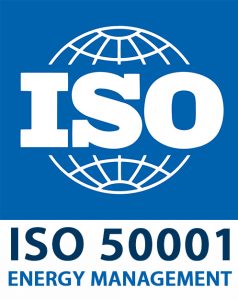The international regulatory environment adapts to the environmental issues that are increasingly present in our immediate environment. The Kyoto Protocol, and more recently the environmental Grenelle round table, are collective approaches defining new actions for sustainable development in France and the world.
Regulatory Energy Audit
The regulatory energy audit is an initiative of the French government, as foreseen by the European Directive 2012/27 / EU, and obliges companies with more than 250 employees to implement an energy efficiency strategy.
The detailed rules for this regulatory audit are set out in Decree No. 2014-1393 of 24 November 2014. It must identify energy-saving deposits among the largest consumers in the tertiary and industrial sectors, to advocate measures allowing up to 30% energy savings by sector of activity.
Thus energy audit is compulsory for companies with more than 250 employees or a turnover of more than 50 million Euros (or a balance sheet of more than 43 million Euros) and must have been realized before On 5 December 2015, failing which a penalty of 2% of turnover may be imposed. Companies that have undertaken an energy management approach through the ISO 50001 certification are exempt from a regulatory energy audit.
The audit must cover at least 80% of the company’s energy bills, the content of the audit being described in European standard NF EN 16247-1. Once completed, it must be handed over to the prefecture of the region where the head office of the company is located, and kept internally for a period of eight years.
The ISO 50001 standard
As is often the case in this field, the government handles both the stick (regulatory audit) and the carrot (ISO 50001) for companies to adopt a responsible and sustainable approach. Indeed, the ISO 50001 standard guarantees the existence of an energy management system in a company, and in all departments: management, human resources, purchasing, maintenance, commercial.

For more information on this point, please visit the Nepsen group, which specializes in energy management for building and industry.
Tour Optimisation
Wherever Open Street intervenes, it is to optimise the road trips of vehicles. The energy impact of these vehicles varies depending on the company, but it is in all cases an attractive savings lever. And this is easy because there is no investment to make, all costs being instantly profitable by the savings in fuel and human time.
If you undertake a sustainable development approach in your company, be it through the regulatory energy audit or the ISO 50001 standard, you can use our tour optimisation service to reduce your energy consumption.
